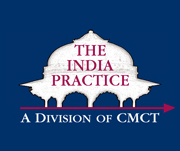It's common for high technology companies today to pride themselves on their multiculturalism on the basis of numbers and headcounts.
However, the mere presence of a workforce from many national, ethnic and corporate backgrounds doesn't in and of itself mean that a business organization is genuinely multicultural. If the diversity of backgrounds doesn't have a transformative effect on organizational assumptions, values and behaviors, it remains at best a neutral statistic, at worst an obstacle to the organization's cohesiveness.
A company may have diversity without inclusiveness. The official value stated in organizational documents may be "diversity is our strength" but when you decode the corporate culture by looking at power relations, policies, practices, processes and daily interactions, practice may be found quite divergent from theory.
Are all differing viewpoints and approaches to solving problems encouraged - or just the narrow band that fits with the prevailing culture of the leadership or dominant social group? Are the differing strengths of diverse management styles acknowledged and emulated - or is there a single standard? Are different employee support needs, expectations, work patterns and communication styles accommodated - or is there a one-size-fits-all approach to managing and developing people?
Do the symbols, narratives and rituals of the company speak to everyone - or do they re-enforce in-group identities at the expense of others? Do recruitment, screening, evaluation, career-tracking and promotion processes genuinely seek to develop diversity at all levels - or are there blinders that perpetuate stereotypical roles for different groups of people? Does the company promote after-hours social interactions and professional networking across cultural, occupational and other sub-groups - or does multiculturalism exist only in the immediate job and project context?
The globalization of the high-technology industry and the tight labor market have brought together technical and business talent from around the world. The full creative possibilities of this situation can only be captured if inclusiveness is deliberately practiced in all aspects of corporate life.
The cost of anything less is an organization in which many people are not operating at their full potential, corporate cohesion is only at a surface level, and a narrow band of approaches and perspectives is used to address problems and respond to opportunities.
- To foster a more inclusive corporate culture, company leaders can do the following:
- Assess the inclusiveness of the current culture and define the gaps.
- Create a top-to-bottom awareness of and motivation for proactive multiculturalism.
- Celebrate both the company's diversity and its unifying corporate direction.
- Align managerial and human resource practices with the multicultural ideal.
- Establish zero tolerance for all forms of prejudice, stereotypes and discrimination.
- Personally model and consistently reward inclusive behaviors and actions.
© Karine Schomer. All Rights Reserved. Originally published in Siliconindia, June 2000. Permission to reprint is granted, provided the article and byline are printed intact, with all links visible and made live if distributed in electronic form.
Karine Schomer, PhD is President of Change Management Consulting & Training, LLC, and leads The CMCT India Practice, specializing in cross-cultural training and management consulting for doing business with India, competitive advantage through cross-cultural awareness, business etiquette and protocols, cross-cultural communication and teamwork skills, outsourcing management best practices, and offshore team leadership strategies. For more learning resources, check The Working and Managing Across Cultures Blog.



